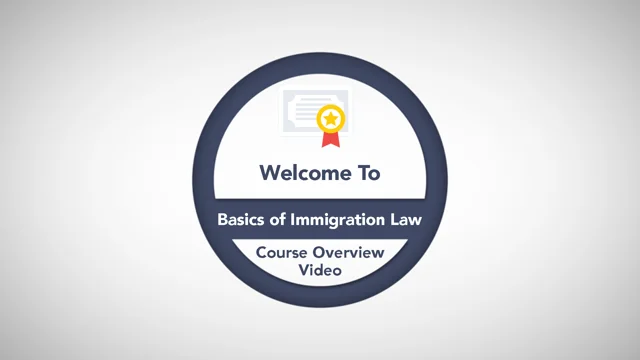OK
alijyun.com will explore this topic comprehensively.
1. Introduction to Immigration Law
OK

2. History of Immigration Law
Immigration law is a complex and dynamic field that governs the entry, stay, and removal of individuals from a country. It encompasses a wide range of statutes, regulations, and policies that dictate how foreign nationals can legally reside and work within a nation. Understanding the fundamentals of immigration law is crucial for both immigrants and legal practitioners. This knowledge not only clarifies the rights and responsibilities of individuals seeking to enter a new country but also establishes the legal framework for enforcement and compliance.
Immigration law is more than just a set of legal rules. It reveals a nation’s core values, its priorities, and its attitude towards cultural diversity. As nations grapple with evolving immigration challenges, driven by economic needs and humanitarian concerns, the laws governing these processes are constantly being re-evaluated and reformed. This article will offer a comprehensive overview of immigration law, tracing its historical roots, exploring the various types of visas and immigration statuses available, and examining the rights and responsibilities of immigrants. By exploring these aspects, we aim to provide readers with a fundamental understanding of immigration law and its impact on individuals and society as a whole.

3. Types of Visas and Immigration Status
Immigration law establishes various visa categories and immigration statuses, each designed for distinct purposes and subject to specific requirements. The two main visa types are non-immigrant and immigrant visas. Non-immigrant visas are temporary, granting individuals permission to enter a country for specific reasons, such as tourism, business, or education. Examples of common non-immigrant visas include the B-1/B-2 tourist visa, the F-1 student visa, and the H-1B work visa, which is intended for individuals in specialized occupations.
In contrast, immigrant visas are designed for individuals seeking permanent residency in the United States. These visas typically necessitate sponsorship from a family member or employer, and can be obtained through various pathways, such as family reunification, employment-based sponsorship, or asylum. Additionally, the Diversity Visa Lottery offers opportunities for individuals from countries with historically low immigration rates to gain permanent residency.
Furthermore, immigration status is not uniform. Individuals may hold lawful permanent resident status, commonly referred to as green card holders, or they might be granted temporary protected status (TPS) in response to humanitarian crises. Comprehending these distinct categories is essential for effectively navigating the immigration process, as each visa or status carries its own set of rights, responsibilities, and limitations.

4. Immigration Processes and Procedures
The immigration process comprises various stages, the specifics of which differ based on the type of visa or immigration status desired. Applicants must first ascertain their eligibility by meeting the particular criteria associated with their chosen visa category. This typically involves compiling essential documentation, including identification, evidence of financial security, and proof of ties to their home country.
After confirming eligibility, applicants usually submit a formal application or petition for review by immigration authorities. This process may involve interviews and background checks to verify compliance with legal requirements. Non-immigrant visas, designed for temporary stays, typically have a faster processing time. In contrast, immigrant visas, which grant permanent residence, often necessitate more extensive documentation and may involve waiting periods due to visa quotas.
Following approval, individuals are obligated to comply with the terms of their visa. This includes maintaining valid status and understanding their rights and responsibilities. Staying informed about any changes in immigration laws or policies is essential to ensure continued compliance.
5. Rights and Responsibilities of Immigrants
Immigrants have specific rights and responsibilities crucial for their integration and legal standing in a new country. Foremost among these rights is access to legal counsel, education, and fair treatment under the law. Additionally, immigrants are guaranteed due process, ensuring any legal actions taken against them are conducted justly.
However, these rights are accompanied by responsibilities. Immigrants are obligated to uphold the laws of their host country, including maintaining legal immigration status and complying with visa requirements. This responsibility may necessitate reporting changes in personal circumstances, such as a change of address or employment status.
Immigrants are encouraged to actively participate in their communities, which can significantly improve their integration process. By recognizing and fulfilling their rights and responsibilities, immigrants can not only contribute to their new society but also ensure their legal status and well-being. A thorough understanding of these aspects is essential for navigating the often-complicated world of immigration law.
6. Immigration Enforcement and Border Security
7. Current Issues and Debates in Immigration Law
Immigration enforcement and border security are essential elements of a nation’s immigration system, designed to control the movement of people entering and living within its borders. This enforcement involves numerous agencies and procedures that oversee adherence to immigration laws, such as border patrols, customs enforcement, and immigration courts.
Border security measures, which commonly include surveillance technologies, checkpoints, and international partnerships, aim to prevent unauthorized entry. While these efforts are crucial for national security, public safety, and upholding the integrity of immigration processes, they can also present complex legal challenges and humanitarian concerns, especially concerning the treatment of individuals attempting to cross borders.
Individuals found to be in violation of immigration laws face potential consequences such as detention, deportation, or legal proceedings. This highlights the critical need for understanding one’s rights and the legal processes involved. Furthermore, ongoing discussions about immigration enforcement frequently focus on the delicate equilibrium between border security and human rights, prompting critical examination of the ethical and practical implications of various policies.
Immigration laws are constantly changing, and so are the methods used to enforce them. This makes it essential for immigrants and legal professionals to stay up-to-date on these developments, as they could significantly affect individual rights and immigration status.
8. Conclusion and Future of Immigration Law
Immigration law is a constantly shifting landscape, influenced by political, social, and economic forces. As nations face the challenges of immigration, the demand for comprehensive and equitable policies grows stronger. It is crucial to grasp the core principles of immigration law, encompassing the rights and obligations of immigrants, to navigate this complex system effectively.
The future of immigration law is poised for substantial reform, driven by the need to address pressing issues like border security, humanitarian crises, and the successful integration of immigrants into society. Policymakers face the critical task of harmonizing national security concerns with the moral imperative to safeguard vulnerable populations.
Furthermore, technological progress and shifts in the global landscape will impact the administration and enforcement of immigration procedures. The ongoing discussions surrounding immigration will shape public sentiment and legislative measures, resulting in new frameworks that reflect societal values and priorities. Staying informed and actively involved will be essential for both immigrants and advocates as they navigate the evolving landscape of immigration law in the coming years.
alijyun.com

